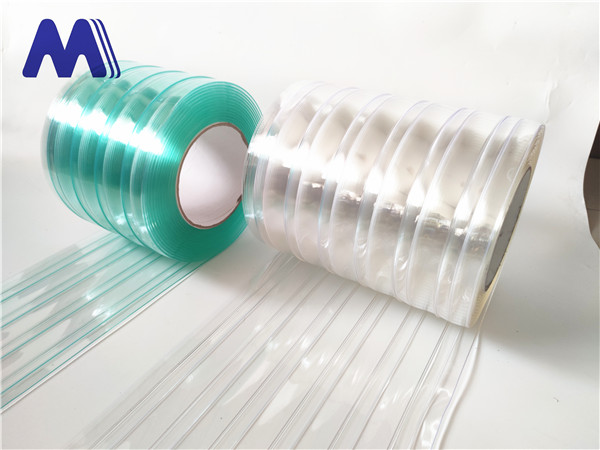- Afrikaans
- Albanian
- Amharic
- Arabic
- Armenian
- Azerbaijani
- Basque
- Belarusian
- Bengali
- Bosnian
- Bulgarian
- Catalan
- Cebuano
- Corsican
- Croatian
- Czech
- Danish
- Dutch
- English
- Esperanto
- Estonian
- Finnish
- French
- Frisian
- Galician
- Georgian
- German
- Greek
- Gujarati
- Haitian Creole
- hausa
- hawaiian
- Hebrew
- Hindi
- Miao
- Hungarian
- Icelandic
- igbo
- Indonesian
- irish
- Italian
- Japanese
- Javanese
- Kannada
- kazakh
- Khmer
- Rwandese
- Korean
- Kurdish
- Kyrgyz
- Lao
- Latin
- Latvian
- Lithuanian
- Luxembourgish
- Macedonian
- Malgashi
- Malay
- Malayalam
- Maltese
- Maori
- Marathi
- Mongolian
- Myanmar
- Nepali
- Norwegian
- Norwegian
- Occitan
- Pashto
- Persian
- Polish
- Portuguese
- Punjabi
- Romanian
- Russian
- Samoan
- Scottish Gaelic
- Serbian
- Sesotho
- Shona
- Sindhi
- Sinhala
- Slovak
- Slovenian
- Somali
- Spanish
- Sundanese
- Swahili
- Swedish
- Tagalog
- Tajik
- Tamil
- Tatar
- Telugu
- Thai
- Turkish
- Turkmen
- Ukrainian
- Urdu
- Uighur
- Uzbek
- Vietnamese
- Welsh
- Bantu
- Yiddish
- Yoruba
- Zulu
Exploring the Versatility and Applications of Flexible PVC in Various Industries
The Versatility and Applications of Flexible PVC
Flexible PVC (polyvinyl chloride), a type of plastic, stands out due to its versatility, durability, and cost-effectiveness. It is a synthetic material known for its remarkable flexibility, making it suitable for a wide array of applications across various industries. This article explores the properties, benefits, and common uses of flexible PVC, highlighting why it has become an integral material in modern manufacturing and consumer products.
Understanding Flexible PVC
Flexible PVC is manufactured by adding specific plasticizers to rigid PVC, which enhances its flexibility and elasticity. The final product retains many of the beneficial properties of standard PVC, including resistance to moisture, chemicals, and UV light, but with increased malleability. This combination allows for easy processing and manipulation into various shapes and forms.
Key Properties of Flexible PVC
1. Flexibility As the name suggests, flexible PVC can bend and stretch without breaking. This property makes it ideal for applications where movement is necessary.
2. Chemical Resistance Flexible PVC is resistant to a wide range of chemicals, which makes it suitable for use in environments where exposure to various substances is likely.
3. Weather Resistance The material can withstand harsh weather conditions, making it suitable for both indoor and outdoor applications.
4. Cost-Effectiveness Compared to other materials with similar properties, flexible PVC is relatively inexpensive, which is why it is favored in various industries.
5. Ease of Processing Flexible PVC can be easily molded, extruded, or shaped into specific configurations, allowing manufacturers to meet diverse design requirements.
Common Applications of Flexible PVC
flexible pvc

1. Building and Construction Flexible PVC is widely used in construction applications, including wiring insulation and plumbing. Its durability and resistance to moisture make it a popular choice for pipes, fittings, and tiles. Additionally, it is often used in window frames and roofing membranes.
2. Automotive Industry The automotive sector utilizes flexible PVC for firewall and under-hood applications, where heat resistance and flexibility are necessary. It is also employed in the production of interior components like upholstery, flooring, and seals.
3. Medical Applications Flexible PVC plays a crucial role in the medical industry, where it is used to manufacture products such as IV bags, tubing, and surgical gloves. Its ability to maintain hygienic standards and its compatibility with various sterilization processes make it ideal for medical equipment.
4. Consumer Goods In the realm of consumer products, flexible PVC is found in toys, packaging, and household items. Its affordability and adaptability allow manufacturers to create a wide range of products that appeal to consumers.
5. Flooring Solutions Flexible PVC is commonly used in flooring solutions, particularly in the form of vinyl flooring. This type of flooring is known for being waterproof, easy to clean, and available in numerous designs and colors, making it a popular choice for both residential and commercial spaces.
6. Signage and Display Materials Flexible PVC is often used for banners, signage, and display materials due to its ease of printing and resistance to weathering. This makes it an excellent choice for outdoor advertisements and presentations.
Environmental Considerations
While flexible PVC has many advantages, it is essential to consider its environmental impact. The production of PVC involves the emission of harmful substances, and its disposal can pose challenges, as it is not biodegradable. To address these concerns, manufacturers are exploring more sustainable practices, including recycling PVC to create new products. Additionally, the emergence of bio-based plastics is providing alternative materials that may offer similar properties without the environmental drawbacks.
Conclusion
Flexible PVC is a material that has proven its worth across numerous applications due to its flexibility, durability, and cost-effectiveness. From construction and automotive to medical and consumer goods, its versatility makes it a go-to choice for manufacturers seeking reliable solutions. As industries continue to evolve, the focus on sustainability will likely influence the future of flexible PVC, paving the way for innovative approaches to material use and disposal. Understanding both the benefits and environmental implications of flexible PVC will be key to harnessing its potential while minimizing its impact on the planet.
-
Klare PVC Türleisten Durable, Transparent & Waterproof Door StripsNewsMay.19,2025
-
PVC Strip Curtains Durable Faltvorhang & Türrollen aus PVCNewsMay.19,2025
-
Industrial & Commercial Freezer Curtains Energy-Saving Cold Storage SolutionsNewsMay.18,2025
-
Clear Garage Door Curtains Durable, Energy-Saving PVC Strip SolutionsNewsMay.18,2025
-
China Style Curtains Hangers - Durable & Elegant Home Decor SolutionsNewsMay.18,2025
-
Anti-Static PVC Rollenblatt Strip Curtains Durable & Static-FreeNewsMay.17,2025



